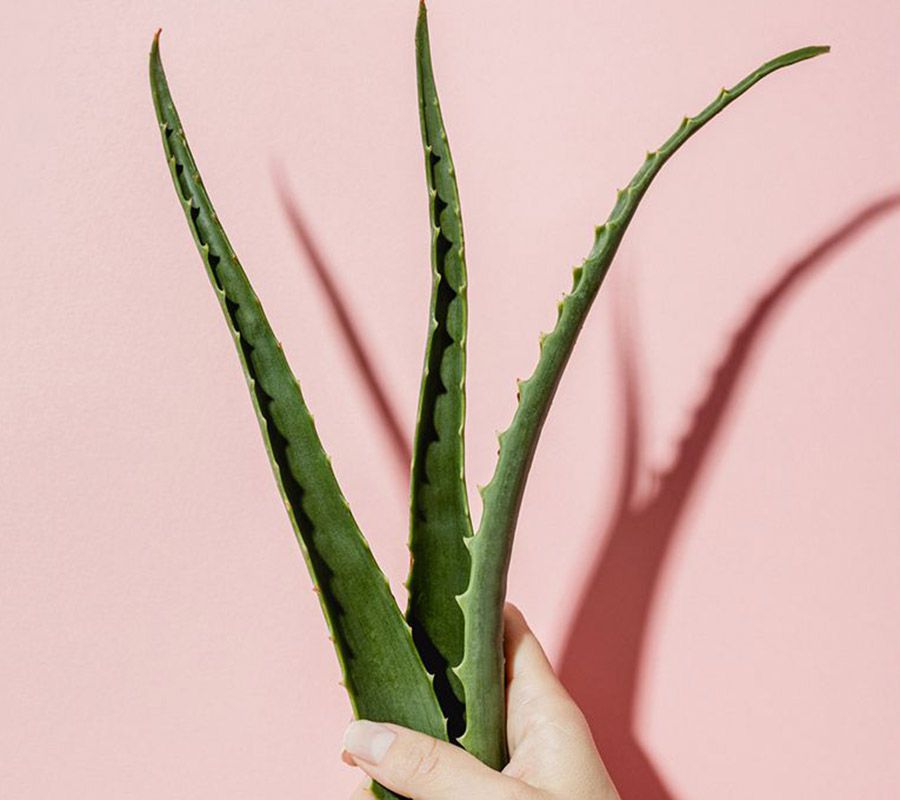Trends come and go, but one thing that will never go out of style is healthy, glowing skin. There are different properties and ingredients that can help achieve this goal, such as humectants. A humectant is a common moisturizing and anti-aging agent found in beauty products used for your hair and skin. It’s known for its ability to retain moisture while also preserving the overall properties of the product at hand, and you’re probably more familiar with humectants than you think.
So, what exactly should you know about humectants? We asked cosmetic chemist Shuting Hu, B.Sc, Ph.D, and dermatologists Marisa Garshick, MD, FAAD, Charles Puza, MD, and Azadeh Shirazi, MD, to give us the lowdown on this hydrator and the potential benefits for your skin. Read on to learn what they had to say.
Humectants
Type of Ingredient: Hydrator
Main Benefits: Helps retain moisture in skin, preserves overall properties of products, helps seal cracks in skin, exfoliates, and removes dead skin.
Who Should Use It: In general, humectants can benefit all skin types because of the range of ingredients that fall under the humectant umbrella. Depending on the amount of moisture you need, you can find the right humectant for your skin type.
How Often Can You Use It: Typical use is 1–2 times daily. Humectants are often found in daily skincare ingredients, and typically used after face wash in the form of a moisturizer. Humectants are not dangerous, but can steal hydrating from deeper skin layers and in turn dry the skin out if over-applied during non-humid weather.
Works Well With: Humectants work well with occlusives, which help to seal moisture in, and emollients, which can help to improve the softness and smoothness of the skin.
Don’t Use With: Humectants hydrate and lead to the concentration of whatever you apply on the skin to stay on the skin. Therefore, you should be cautious with strong acids and retinoids.
What Is a Humectant?
“A humectant is a substance that is key to keeping the skin hydrated,” Hu tells us. “It’s an ingredient that helps draw moisture to the skin’s surface and retains water so that the skin does not end up drying out quickly. It is commonly used in face and body products such as serums, lotions, and creams.”
Familiar humectants include hyaluronic acid and collagen-boosting properties, both of which are commonly found in our daily skincare. Different humectants have different origins, but they all have a common purpose as skin hydrators. “Some humectants are derived from natural sources, such as honey and aloe vera, while others are synthesized from other sources to create ingredients like glycerin and propylene glycol,” says Shirazi.
Charles also notes that as humectants draw in moisture, they should not be applied to dry skin. “Always add humectants to damp skin,” he says.
Benefits of Humectants
- Draws moisture in: Humectants are designed to act like a sponge and attract water, says Garshick. They are often able to hold up to 100–1000 times their weight in moisture.
- Keeps the outside world out: Humectants that are occlusives will work to seal off the cracks in the skin, says Charles.
- Can double as keratolytic: Urea, a humectant, can also be an agent that helps remove skin, says Charles. It is effective on dry or rough skin, such as on the heels.
- Preserves properties: Humectants can help dissolve actives and preserve products, says Shirazi.
- Exfoliates: Shirazi also shares that humectants can work as exfoliators and remove dead skin cells to even out the moisture levels in the skin.
- Soothes: Humectants function as a way to soothe and calm the skin after experiencing irritation, Hu tells us.
- Pretty and plump: Hu also adds that humectants can help reduce the appearance of fine lines and wrinkles by “plumping” the top layer of your skin.
Side Effects of Humectants
While there are no general “side effects” of humectants, it is important to note that application is best after cleansing, while the skin is still damp.
“Humectants can be dry skin’s BFF or worst enemy,” says Shirazi. “The problems start when there is little humidity in the air, and the humectant is applied several times a day. It will begin to steal hydration from deeper skin layers, which in turn can dry out the skin.”
How to Use
If you have a skincare routine, you are probably already using humectants without realizing it, explains Hu. Water-based skincare products are formulated with humectants because they moisturize and have preserving properties.
Products with humectants can be applied at any stage of your skincare routine when your skin is still damp. Hu also emphasizes Shriazi’s point of applying the products when the skin is still damp, to help the product easily absorb into the skin.
“Products with humectants can be applied at any time, day or night,” adds Hu. “Humectants should be sealed with an occlusive product unless you live in an extremely humid environment. Otherwise, all of the moisture the humectant worked to bring to your stratum corneum will be evaporating into air.”
The Best Products With Humectants
Vichy Minéral 89
:max_bytes(150000):strip_icc()/Vichycopy-11c1b0e2fa844f0e9bd0eb4c97324a51.jpg)
:max_bytes(150000):strip_icc()/GlowRecipe-e8e65da4ad39450883f1f6dd1a96048c.jpeg)
:max_bytes(150000):strip_icc()/Thayers-dfba3d5c1cfd46ecb00ea0fdfe73a7a6.jpeg)
:max_bytes(150000):strip_icc()/WanderBeauty-ae40015ff5c643f49190ce4ac484908a.jpeg)
:max_bytes(150000):strip_icc()/Tatcha-af12b75ca5934ab6a0532b1ff1145360.jpeg)
:max_bytes(150000):strip_icc()/LaRoche-Posay-bf3b0a6e87ea46a089168441c6ce4167.jpg)
:max_bytes(150000):strip_icc()/Neutrogena-e76e961d9f044009905add1cbd91e728.jpeg)
:max_bytes(150000):strip_icc()/First-AidBeauty-625f0943541e4c19871ad6894ba6a2d2.jpeg)
:max_bytes(150000):strip_icc()/AziMD-02f4e7f9bd31414a9afba860e30df650.jpeg)
:max_bytes(150000):strip_icc()/Acaderma-bc3a74213f3942b4a4c70c833dc2ab7f.jpeg)
:max_bytes(150000):strip_icc()/Anove-31fe74380e06418bad6de54209a9c510.jpeg)
:max_bytes(150000):strip_icc()/Anove-31fe74380e06418bad6de54209a9c510.jpeg)
Anove
AHA + Aloe Cleansing Gel
$45.00
Many cleansers can easily dry out the skin, says Hu, but the AHA + Aloe Cleansing Gel uses Aloe Vera to deliver a boost of hydration, retain moisture in your skin, and soothe irritation.
The Best Facial Moisturizers for Nourishing Hydration
Featured Video










